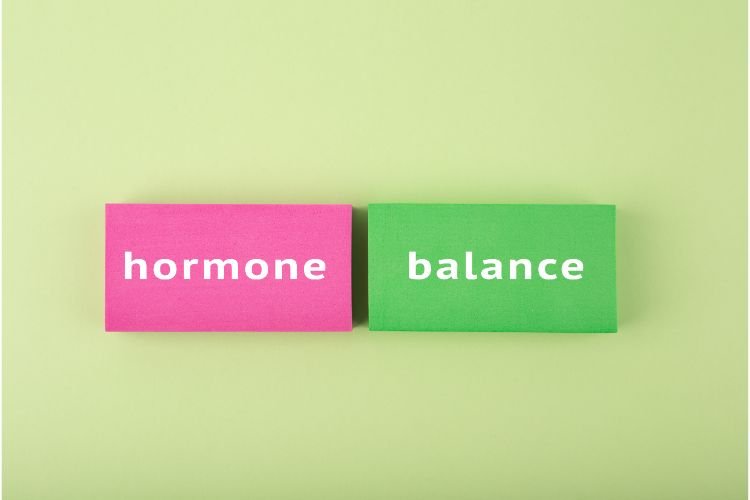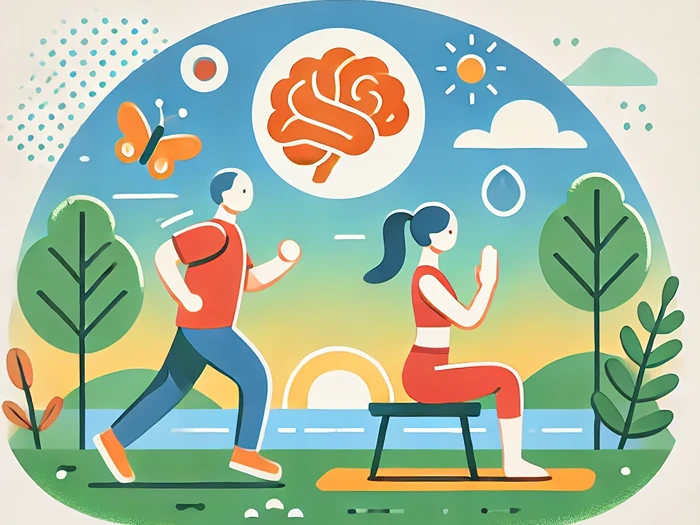
Balancing Hormones Naturally: Best Herbs for Men and Women
Hormones play a crucial role in our overall health, influencing everything from mood and energy levels to metabolism and reproductive health. When hormones are out of balance, it can lead to a variety of issues, including fatigue, weight gain, and mood swings. Luckily, there are natural ways to help balance hormones, and one of the most effective methods is through the use of herbs. In this article, we’ll explore how balancing hormones naturally with herbs can benefit both men and women, and dive into the best herbs to support hormonal health.
Understanding Hormonal Imbalance
Hormonal imbalance occurs when there is too much or too little of a hormone in the bloodstream. This imbalance can be caused by various factors such as stress, poor diet, lack of exercise, and underlying health conditions. Symptoms can vary widely, including irregular periods, anxiety, depression, and weight fluctuations.
Common Symptoms of Hormonal Imbalance
- Irregular menstrual cycles or missed periods.
- Unexplained weight gain or loss.
- Chronic fatigue or low energy.
- Mood swings, anxiety, or depression.
- Acne or skin changes.
Helpful Hint:
If you suspect a hormonal imbalance, it’s a good idea to consult with a healthcare provider. They can run tests to determine your hormone levels and help tailor a treatment plan that may include natural remedies like herbs.
How Herbs Can Help Balance Hormones
Herbs have been used for centuries to support health and wellness, and they can be particularly effective in balancing hormones. Many herbs contain compounds that can help regulate hormone production, improve hormone metabolism, and reduce symptoms associated with hormonal imbalance. Let’s look at some of the best herbs for hormone balance.
Adaptogens for Hormonal Balance
Adaptogens are herbs that help the body adapt to stress and normalize bodily functions. They are particularly useful in balancing hormones because stress can significantly impact hormonal health.
1. Ashwagandha
Ashwagandha is a well-known adaptogen that can help regulate cortisol levels, the stress hormone. By reducing cortisol, it helps alleviate stress and its effects on hormone balance.
2. Rhodiola
Rhodiola is another adaptogen that supports the body’s stress response. It can enhance mood, improve energy levels, and help balance hormones by reducing the impact of stress on the body.
Helpful Hint:
When choosing adaptogenic herbs, consider your specific stressors and symptoms. Different adaptogens may offer different benefits, so it may be helpful to try a few to see which works best for you.
Herbs for Women’s Hormonal Health
Women’s hormonal health can benefit greatly from specific herbs that support menstrual health, menopause, and overall hormonal balance.
1. Vitex (Chaste Tree)
Vitex is renowned for its ability to support menstrual health and alleviate symptoms of premenstrual syndrome (PMS). It helps regulate estrogen and progesterone levels, promoting a more balanced menstrual cycle.
2. Dong Quai
Dong Quai is often used in Traditional Chinese Medicine to support female reproductive health. It helps balance hormones and improve symptoms related to menopause and menstrual irregularities.
Herbs for Men’s Hormonal Health
Men can also benefit from herbs that support testosterone levels and overall hormonal balance.
1. Tribulus Terrestris
Tribulus Terrestris is known for its potential to support testosterone levels and improve libido. It may also help enhance athletic performance and muscle mass.
2. Maca Root
Maca Root is a powerful herb that supports energy levels, stamina, and hormonal balance. It’s often used to enhance mood and support reproductive health.
Incorporating Herbs into Your Daily Routine
Integrating herbs into your daily routine can be a simple yet effective way to support hormonal balance. Here are some practical tips to help you get started:
1. Herbal Teas
Herbal teas are a convenient and enjoyable way to consume beneficial herbs. Many herbs that support hormonal balance can be steeped into teas. For example, you can brew Ashwagandha or Vitex tea to help manage stress and support menstrual health.
How to Prepare Herbal Teas:
- Boil water and let it cool slightly to avoid destroying delicate compounds.
- Add one teaspoon of dried herbs per cup of water.
- Steep for 5-10 minutes, then strain and enjoy.
2. Herbal Supplements
If you find it difficult to consume herbs daily through teas or foods, herbal supplements are a practical alternative. Look for high-quality supplements from reputable brands. Ensure that they are standardized to contain specific active compounds.
Choosing Herbal Supplements:
- Check for third-party testing to ensure quality and potency.
- Follow the recommended dosage on the label.
- Consult with a healthcare provider to determine the best dosage for your needs.
3. Incorporating Herbs into Meals
Adding herbs to your meals is another way to enjoy their benefits. You can incorporate herbs like Maca Root into smoothies or use powdered herbs in cooking.
Ideas for Incorporating Herbs into Meals:
- Blend Maca Root powder into your morning smoothie.
- Add dried herbs like Rhodiola to soups and stews.
- Sprinkle Ashwagandha powder into baked goods for a health boost.
Helpful Hint:
Start with a small amount of herbal supplements or additions to your diet and gradually increase as needed. This approach helps you gauge how your body responds and reduces the risk of potential side effects.
Effective Herbal Combinations for Hormonal Balance
Combining certain herbs can enhance their effectiveness and provide broader support for hormonal balance. Here are some effective herbal combinations to consider:
1. Adaptogen Blend
Combining adaptogens like Ashwagandha, Rhodiola, and Holy Basil can create a powerful blend that supports stress management and overall hormonal balance.
Recipe for an Adaptogen Blend:
- Mix equal parts of Ashwagandha, Rhodiola, and Holy Basil powders.
- Add one teaspoon of the blend to your daily smoothie or herbal tea.
- Adjust the amount according to your taste and tolerance.
2. Women’s Hormone Support Blend
A blend of Vitex, Dong Quai, and Red Clover can support menstrual health and ease symptoms related to menopause and PMS.
Recipe for Women’s Hormone Support Blend:
- Combine 1 part Vitex, 1 part Dong Quai, and 1 part Red Clover.
- Steep one teaspoon of the blend in hot water for 10 minutes.
- Drink daily or as needed to support hormonal health.
3. Men’s Hormone Support Blend
Combining Tribulus Terrestris, Maca Root, and Saw Palmetto can help support testosterone levels and overall male hormonal health.
Recipe for Men’s Hormone Support Blend:
- Mix equal parts of Tribulus Terrestris, Maca Root, and Saw Palmetto powders.
- Add one teaspoon of the blend to smoothies or take as a supplement.
- Adjust the dosage according to personal needs and preferences.
Helpful Hint:
When creating herbal blends, start with small quantities and observe how your body responds. Adjust the ratios and dosages based on your individual needs and preferences.
Comparison of Popular Herbs for Hormonal Balance
| Herb | Benefits | How to Use | Potential Side Effects |
|---|---|---|---|
| Ashwagandha | Reduces stress, supports adrenal function | Tea, capsules, powder | Mild digestive issues, drowsiness |
| Vitex | Balances menstrual cycles, reduces PMS symptoms | Capsules, tincture | Headaches, gastrointestinal discomfort |
| Maca Root | Boosts energy, supports libido | Powder, capsules | Digestive issues, insomnia |
| Dong Quai | Supports menstrual health, reduces cramps | Tea, capsules, tincture | Possible bleeding issues, allergic reactions |
Potential Side Effects and Considerations
While herbs can offer significant benefits for hormonal balance, it’s important to be aware of potential side effects and considerations:
1. Allergic Reactions
Some people may experience allergic reactions to certain herbs. If you’re trying a new herb, start with a small amount and monitor for any adverse reactions.
2. Interactions with Medications
Herbs can interact with prescription medications, so it’s crucial to consult with a healthcare provider if you’re taking medications or have existing health conditions.
3. Quality of Herbs
Ensure you’re using high-quality herbs from reputable sources. Poor-quality herbs may not provide the intended benefits and could contain contaminants.
Helpful Hint:
Always consult with a healthcare professional before starting any new herbal regimen, especially if you are pregnant, nursing, or have a chronic health condition.
The Benefits and Drawbacks of Using Herbs for Hormonal Balance
Pros
- Natural Approach: Herbs offer a natural way to support hormonal balance without synthetic chemicals.
- Broad Range: Many herbs address various hormonal issues, from menstrual discomfort to stress management.
- Minimal Side Effects: When used correctly, herbs generally have fewer side effects compared to conventional medications.
- Holistic Benefits: Herbs often provide additional health benefits, such as improving digestion or boosting immunity.
Cons
- Delayed Results: Herbal remedies may take longer to show results compared to prescription medications.
- Possible Interactions: Herbs can interact with medications, potentially reducing their effectiveness or causing adverse reactions.
- Quality Variability: The effectiveness of herbs can vary based on quality and source, leading to inconsistent results.
- Consultation Needed: It’s crucial to consult with a healthcare provider before starting any herbal regimen, especially if you have existing health conditions.
FAQs
Wrapping Up
Finding balance in your hormones naturally with herbs is a promising approach to supporting your overall health. By integrating herbs like Ashwagandha, Vitex, and Maca Root into your daily routine, you can address hormonal imbalances and improve your well-being. Remember to start with small amounts, consult with a healthcare provider, and monitor how your body responds. Embracing a natural approach can lead to better health and vitality.



